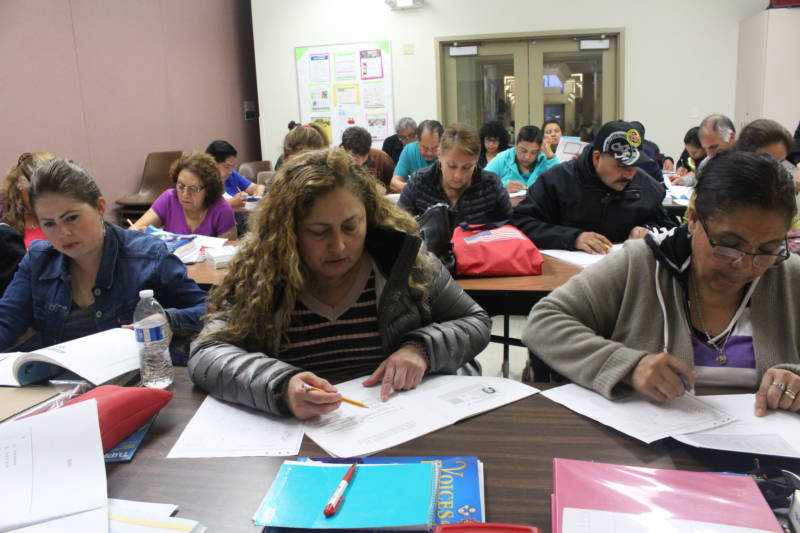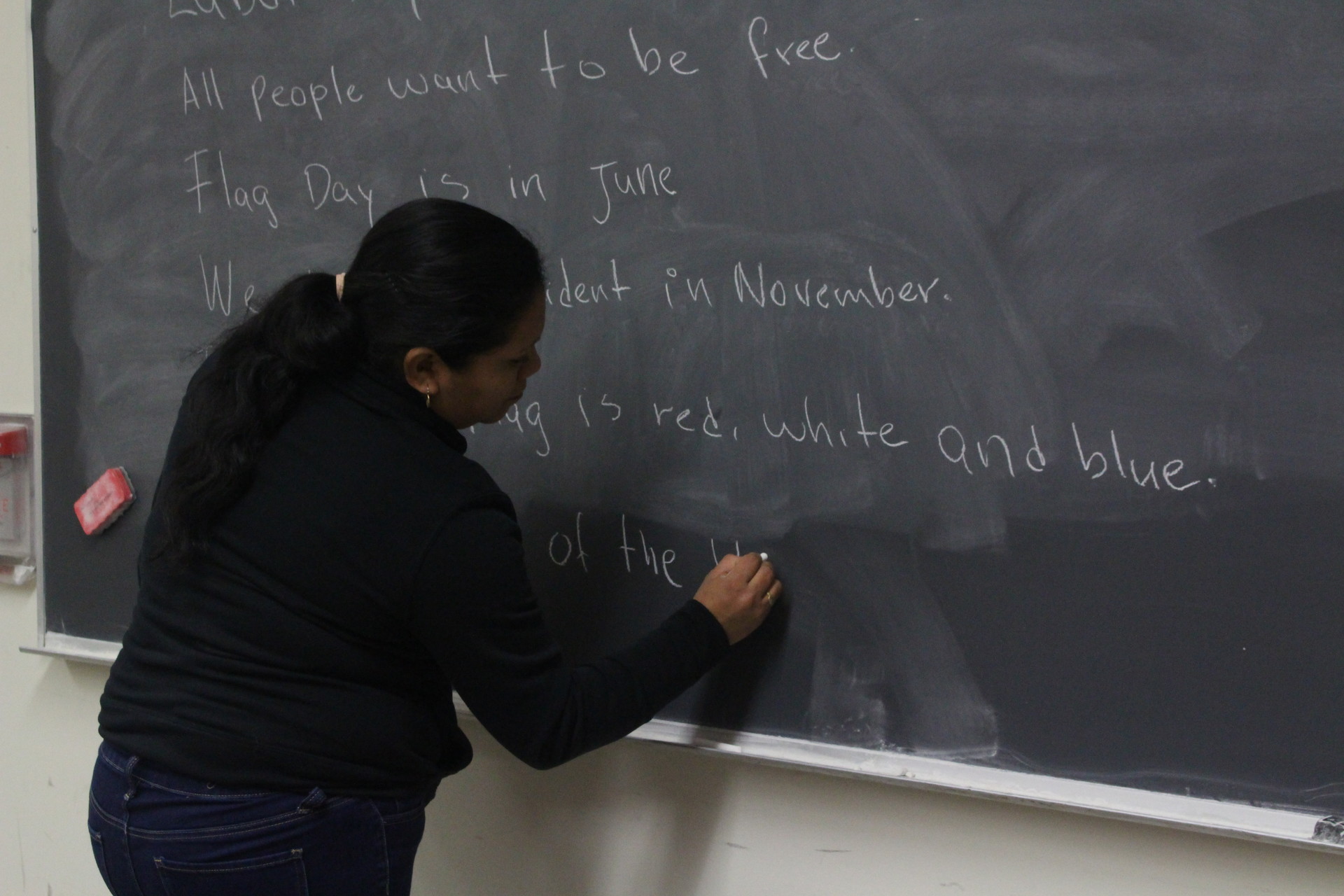A plan in the works from the Trump administration could make it harder for immigrants to request an exemption from fees when they seek to become citizens or legal permanent residents of the United States.
Monday is the deadline for public comments on a proposal that would eliminate proof of means-tested benefits, such as Medi-Cal or CalFresh food stamps, as a way to qualify for fee waivers in immigration applications. The agency would still offer to waive fees for applicants who can show through other documents they are very low income or have a financial hardship.
In California, the move could exclude more than 200,000 potential applicants for citizenship from obtaining fee waivers, and is likely to discourage others from applying, according to researchers.
An application for citizenship costs a total of $725, while a request for a green card is $1,225.
Opponents argue that the proposal from U.S. Citizenship and Immigration Services would lengthen and complicate the process of requesting a free application by dropping the most straightforward way for people to prove that their income is low.


